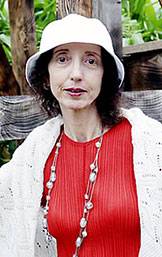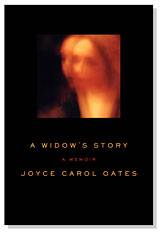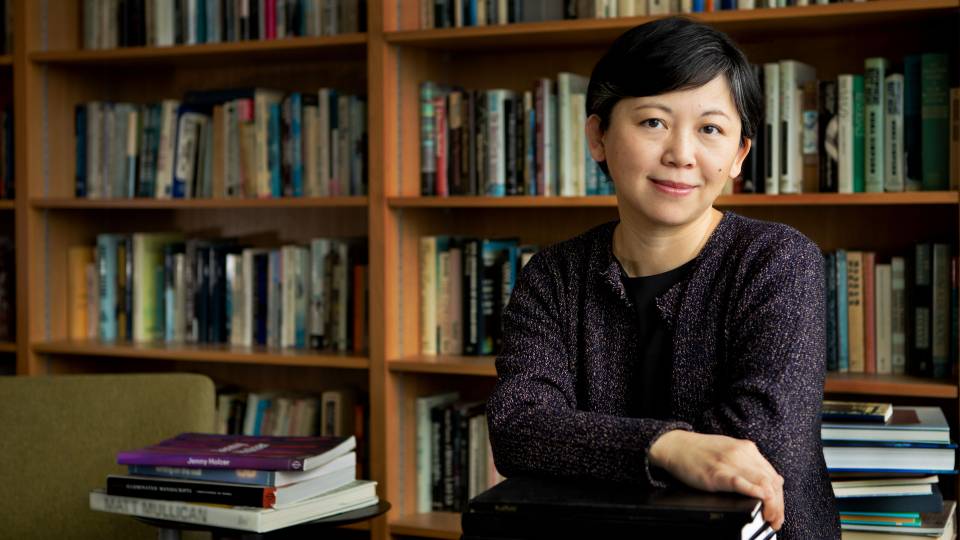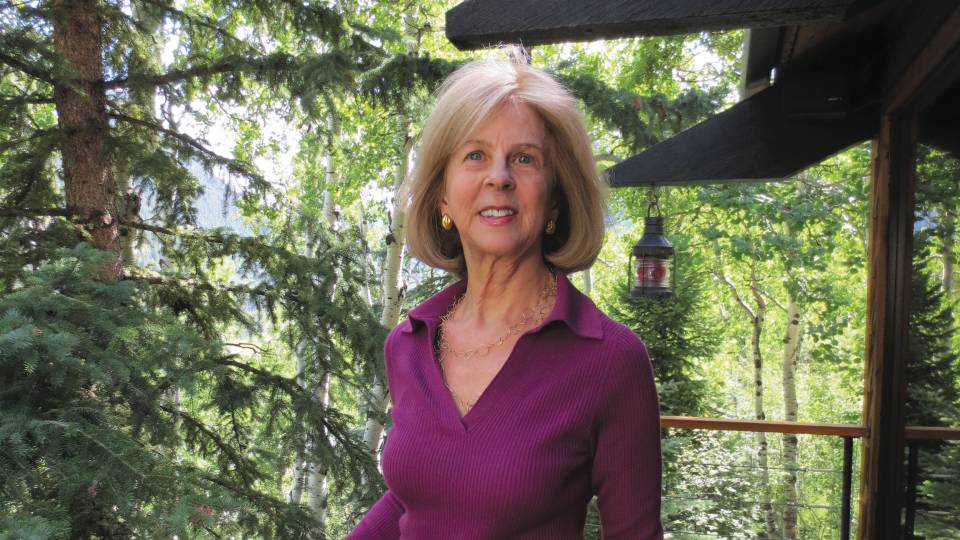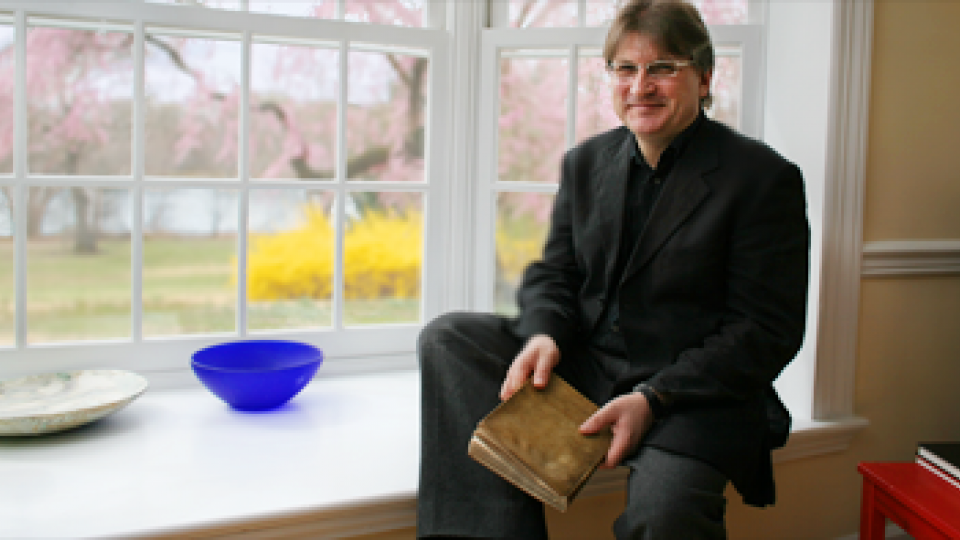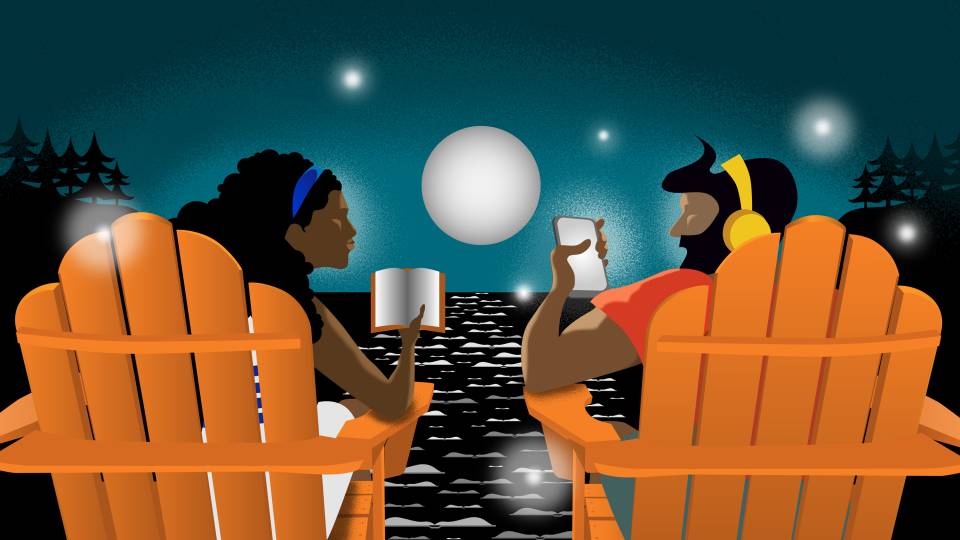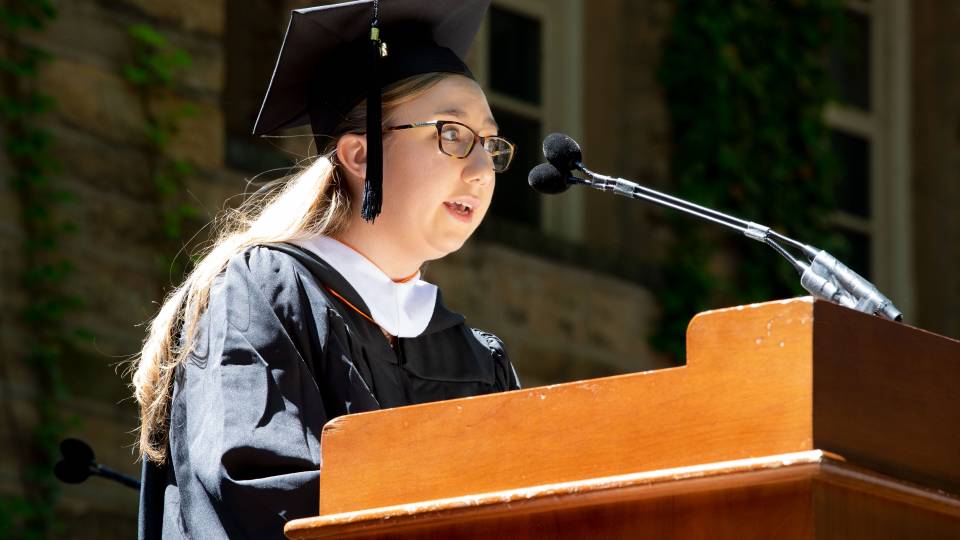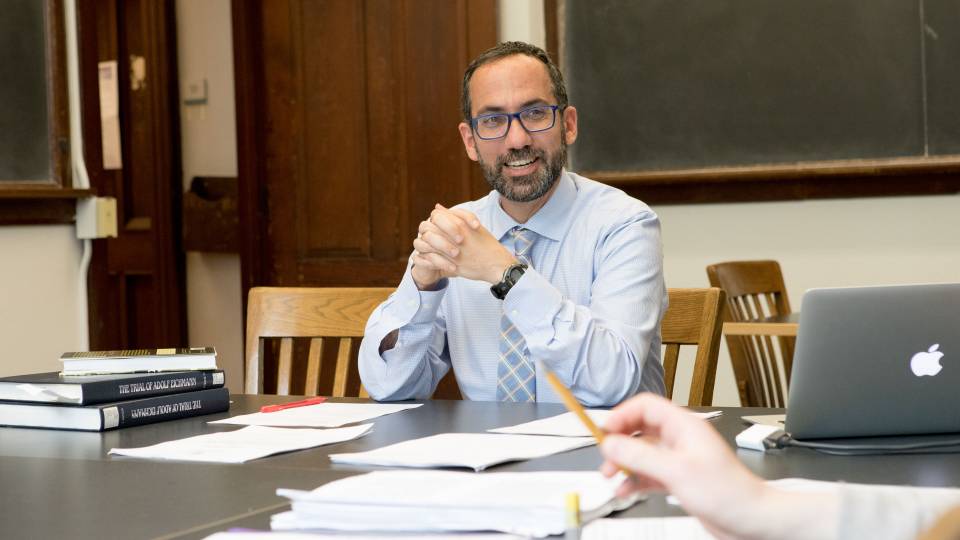When creative writing professor and famed novelist Joyce Carol Oates was struggling with the grief of losing her husband of 46 years, teaching writing to Princeton students served as a lifeline.
In her new memoir, "A Widow's Story," she recalls her return to 185 Nassau St., home of the University's Lewis Center for the Arts, to teach her fiction workshop several weeks after the February 2008 death of her husband, Raymond Smith, who died from an infection after being hospitalized for pneumonia.
"The anxiety, the despair, the anger I've been feeling -- that has so transformed my life -- immediately fades, as shadows on a wall are dispelled by sunshine," writes Oates, the Roger S. Berlind '52 Professor in the Humanities at Princeton. "Always I have felt this way about teaching but more strongly, because more desperately, after Ray's death."
Outside her classes at Princeton, where she has taught since 1978, the period after her husband's death was a desperate time for Oates, who writes movingly about the anguish of losing her lifelong companion. Smith and Oates met as graduate students at the University of Wisconsin-Madison, in 1960, and were engaged a month later. Together they founded the Ontario Review, a literary journal, where Smith served as editor.
"I feel as if I'm missing something visible -- an arm, a leg," she says in the memoir. "Or that part of my face has been smudged and distorted as in a nightmare painting by Francis Bacon. Like the cruelest and most succinct of prognoses in a Chinese fortune cookie the thought comes to me -- Not one person in this room would want to trade places with you: widow."
An award-winning writer who has penned more than 50 novels, as well as books of short stories, plays, poetry, literary criticism and essays, Oates has now written a work unlike any of her previous books -- a highly personal look at the most difficult time in her life. In this interview, conducted by e-mail, Oates talks about the futility of words in capturing her emotions, how the memoir, which was published this February, grew out of her journals, and the surprising ending to this chapter of her life story.
You describe teaching as a refuge during the days following Ray's death. Can you talk about why you enjoy teaching at Princeton, and especially how it helped you cope?
Teaching is a great solace to us all, in times of emotional crisis -- it need not be an extreme experience, but merely the vicissitudes of daily life that are distracting -- but when one is in a classroom, particularly an intensely engaging workshop, one's attention and concentration are solely on the task at hand.
You write in the memoir that being a writer is "of dubious value," but being a teacher is "a way of allowing others into the solitariness of one's soul." How has teaching at Princeton achieved that for you?
To the writer, one's own work seems of "dubious" -- (that is, "debatable") -- value; but teaching is an absolute, always a positive. I don't really think of teaching as therapeutic -- as these answers seem to be indicating -- but as a highly rewarding, constructive, altogether human activity, encoded in our genes. One generation must "teach" another since we can't pass knowledge on through our genes in any sort of literal or mystical way.
In "A Widow's Story," you describe so vividly what it is to lose a spouse. Did writing the book help you cope with your grief?
This is very hard to answer. "Helping to cope" -- "grief" -- all these are quite abstract words, long after the fact. The most profound realization one has, after a great loss, is that words are more or less futile, and that one can't "talk oneself" out of the most significant emotions of one's life. It is like trying out various words, in various languages, for "sun" -- the ineffable actuality of what we mean by "sun" isn't conjured by any language.
Human beings valiantly construct narratives to contain them, but the narratives are ephemeral and fragile -- we do what we can in the aftermath of a personal tragedy, and may afterward look back in retrospect, thinking, yes, this was a good thing to have done; but how can one know? It does seem to be the case that writing -- thinking, and then writing -- is cathartic in some way; though it may also exacerbate the condition.
This book is more personal than anything you've written before. Why did you decide to share this story with your readers, and what do you hope they will take away from it?
I did not really write to exorcise emotions but to present Raymond to the world in some way. I did not want Raymond to disappear, to be forgotten. Quickly after a loss the "survivor" wants to call back the person who has died --there is the childlike wish just to say the name repeatedly -- to ensure that it will not be forgotten.
You capture the raw devastation of being without Ray with such honesty and detail. What were the most difficult elements for you to write about?
The memoir was constructed months after the fact by way of journal entries. Each night, while Ray was in the hospital and after, I would be unable to sleep and would write in my journal, as I often do in any case; but in this case, much more obsessively, desperately. Nothing in the memoir was imagined as a "memoir piece"-- an essay or a chapter -- which is why the "chapters" are often so short. A journal should be a place of refuge and utter privacy -- a place in which one can write what is truly in -- and on -- and beneath -- the conscious mind. Over all, I would say that I needed to capture the astonishing experiences I was going through -- one surprise after another -- though in retrospect some of them would not really seem surprising to a neutral observer.
The journal is a record of daily, sometimes hourly, life, not a place for summary and synopsis; the air of breathlessness and wonder in the memoir is exactly how I felt, and I thought that other individuals in my situation, whether widows or widowers, might find some resonance here.
The original title was to be "The Widow's Handbook" -- which remains now in a sort of fossil-state as one of the final chapter-titles.
I think that, overall, journal-keeping is very healthy and for some people, a necessity of (mental, emotional) life. Those who can't take time for a journal are probably the very people who would most benefit from it. In an age of e-mail and other rapid communications, these forms may substitute, to a degree, for journal-keeping. One can be honest and direct in e-mails, as one writes so rapidly, with virtually the swiftness of thought. A journal should not be revised -- the purpose of the journal is defeated if its breathlessness is made calculated and artificial.
At the end of the book you give us a glimpse of the start of a new life with Princeton professor Charles Gross. Was it a surprise to you that you would get married again?
At the time, I had not the slightest glimmer of any idea of meeting "another man". . . let alone "another husband." I found it such an effort to get through a single day -- in fact, to get up in the morning, get reasonably dressed and try to work. I did not think that I could really bear to speak with people who were not close friends -- who would not know who Ray was -- and it did seem to me for a long time a kind of disloyalty, a kind of ignoble, superficial wish to "move on" (such a crude, cruel term) -- that was unreal, if not in fact surreal. Of course, meeting another person in his complexity, with his own particular history and unique sensibility, is a great, intimidating adventure, for which I was probably not emotionally prepared; but, there was Charlie, with his remarkable energy, enthusiasm, zest for life and remarkable certitude -- an irresistible force.
